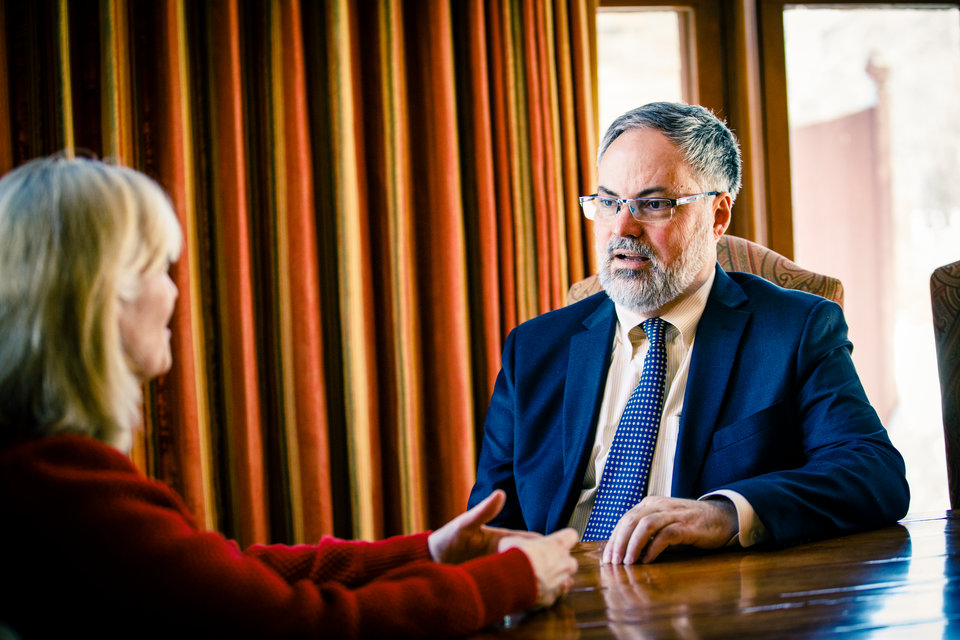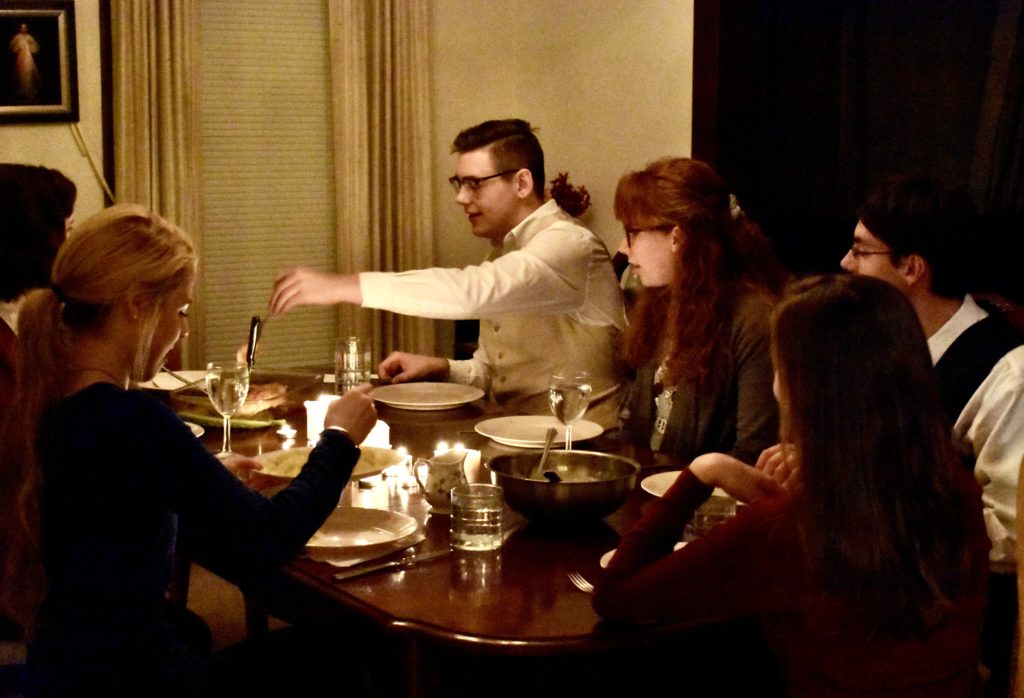Christopher Thompson will be stepping into the role of co-director of the Terrence J. Murphy Institute for Catholic Thought, Law and Public Policy, taking over from Dr. Billy Junker, assistant professor of Catholic studies, beginning fall 2018. Thompson is an associate professor of moral theology with The Saint Paul Seminary School of Divinity and director of the Center for Theological Formation.
He will join Lisa Schiltz, Herrick Professor of Law and Thomas J. Abood Research Scholar, in directing the Murphy Institute. The institute is a collaboration between the College of Arts and Sciences’ Center for Catholic Studies and the St. Thomas School of Law that is dedicated to providing rigorous discussions on issues regarding law and public policy with a Catholic vantage point.
Schiltz, who has been with the institute since 2009, said she will miss the “brilliant” Junker but is looking forward to also learning from Thompson and seeing where his connections will lead.
“[Junker] did incredible work in deepening the institute, putting together programs and inviting internationally renowned scholars in areas I know little about,” said Schiltz.
Thompson has deep roots with the Catholic Studies program at St. Thomas. He was hired into the Theology Department in 1992 and was involved in the early founding of the Catholic Studies program, including serving as chair from 2002-2005. He has worked at the seminary for approximately 10 years and has served as the academic dean.
Thompson described his becoming the new co-director as a “homecoming” of sorts.
“The Murphy Institute has a long legacy of providing space for examination of cultural and political social values from a Catholic perspective,” Thompson said. “I think when you take an inventory of the current state of our democracy, especially our social exchange and the ability to really examine ideas in a constructive way, something like the Murphy Institute becomes even more essential.”
One of Thompson’s areas of research is on ecology. Ecology typically focuses on the interaction of organisms with one another and their environment. Through a theological lens, Thompson studies how we can rethink our attitudes and practices in regard to creation and its resources.
“I think we need to recover our re-enchantment of nature,” Thompson said, “and its capacity to disclose something about God and, therefore, the human person.”
Such reflection, Thompson said, may prompt questions that ask what values and principles will guide humankind to pass on environmental conditions in a maximally healthy way to future generations – or, in short, how ecology can raise the issue of the common good.
Thompson said that one of his overall goals as a co-director is to continue to contribute to the Murphy Institute’s legacy of excellence.
Schiltz added that the interdisciplinary nature of the Murphy Institute and its diversity of perspectives is one of its particular strengths. “We include all aspects of human behavior and human thought that we enact in dialogue to regulate how we consider each other in political structures,” Schiltz said. “I think it benefits the university as a whole to have this dialogue because we are able to be a forum for interdisciplinary thought.”
Schlitz’s areas of focus have centered on disability rights and end-of-life issues. (For more information on a bioethics workshop the Murphy Institute co-sponsored on these topics, see Page 9.)
Recent sessions offered by the Murphy Institute have included a debate on Confederate monuments featuring School of Law Dean Robert Vischer and College of Arts and Sciences Dean Yohuru Williams; a panel on universal basic income; and a conversation between op-ed New York Times columnist Ross Douthat and prominent intellectual Dr. Cornel West.
“[The Douthat-West conversation] was a great model for the kind of conversations we need to have more in the U.S. to deal with our pressing issues,” Schiltz said of the Douthat-West talk, which drew more 1,000 audience members.





